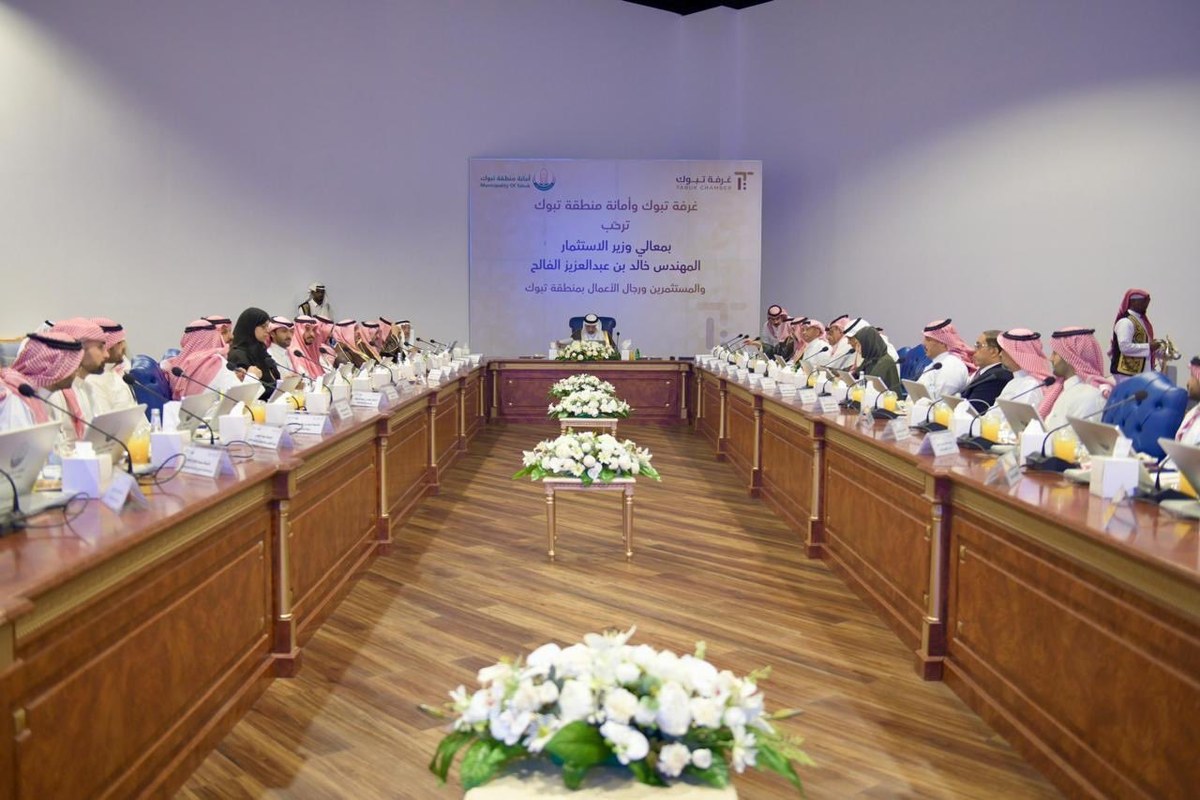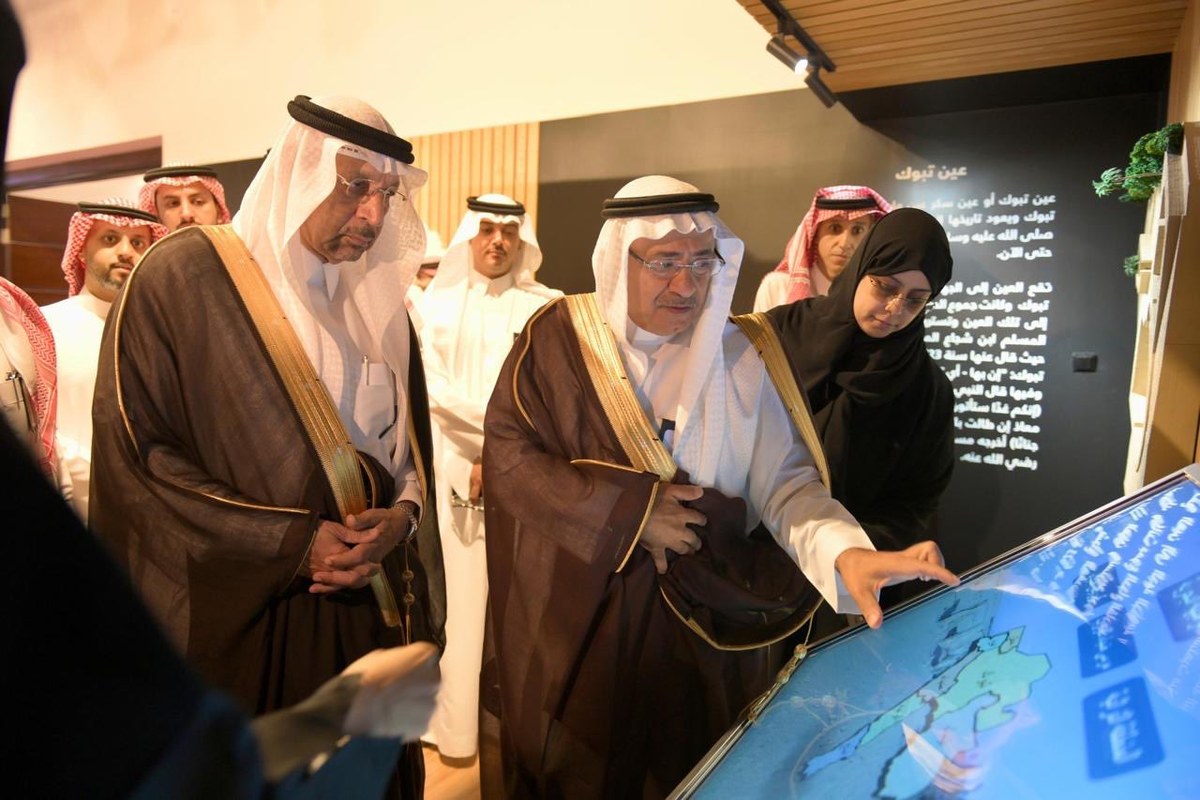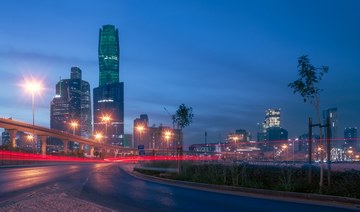You are here
- Home
- Consumer confidence in Saudi economy among highest globally: Survey

Consumer trust aligns with Saudi Arabia’s economic growth projections. Shutterstock
Short Url
https://arab.news/94c3q
Updated 30 July 2024
Consumer confidence in Saudi economy among highest globally: Survey

- Kingdom’s PCSI for May stands at 72.7, slightly higher than April’s 71.9 score
- Data shows Saudi Arabia’s confidence levels are surpassing major economies like China and India
Updated 30 July 2024
Arab News
RIYADH: Consumer confidence in Saudi Arabia ranks among the highest globally, with 95 percent of respondents believing the country is heading in the right direction, according to a new survey.
The latest Ipsos Primary Consumer Sentiment Index for Saudi Arabia shows the Kingdom’s confidence levels are surpassing major economies like China and India.
The Kingdom’s PCSI for May stands at 72.7, slightly higher than April’s 71.9 score and significantly above the global average of 50.2.
The index evaluates current personal financial conditions, economic expectations, investment climate, and employment confidence.
Consumer trust aligns with Saudi Arabia’s economic growth projections, which are set to outpace the global average in 2025, according to the latest International Monetary Fund study.
The IMF’s World Economic Outlook update puts the Kingdom’s output increase at 4.7 percent next year — above the 3.3 percent international forecast.
When evaluating the current state of the local economy, 73 percent of the survey’s respondents described it as strong, while 24 percent viewed it as neutral.
Looking ahead, 87 percent anticipate a more robust economy in the next six months, reflecting significant optimism about future economic conditions.
Regarding personal finances, 47 percent of respondents rated their situation as strong, 8 percent as neutral, and 45 percent as weak.
Around 77 percent of respondents expect their financial situation to improve in the next six months, indicating a high level of personal financial assurance.
Job security confidence remains high, with 78 percent of respondents feeling more stable in their jobs compared to six months ago.
Confidence in making major purchases, such as homes or cars, has risen, with 77 percent feeling more comfortable than six months prior.
Looking ahead financially, 75 percent are confident in their ability to make future investments, including saving for retirement and their children’s education.
The top five consumer concerns are inflation, unemployment and jobs, taxes, climate change, and COVID-19.
The survey methodology involved self-administered online interviews with a sample size of 500 respondents aged 15 years and above. The criteria targeted the general public to ensure a broad representation of consumer sentiment.
Founded in 1975, Ipsos is one of the largest market research firms in the world operating in 90 markets. The company provides information based on surveys and professional studies.
Saudi Arabia, UAE propel regional M&A activity in H1 to hit $49.2bn

Updated 32 sec ago
Saudi Arabia, UAE propel regional M&A activity in H1 to hit $49.2bn

Updated 32 sec ago
Arab News
RIYADH: Merger and acquisition activity in the Middle East and North Africa region saw a modest 1 percent increase year on year in the first half of 2024, reaching $49.2 billion across 321 deals, according to Ernst & Young.
The UK-based accounting firm attributed this steady growth primarily to activity in Saudi Arabia and the UAE, which together accounted for 152 deals valued at $9.8 billion. Saudi Arabia and the UAE were notable for their significant roles as both bidders and targets in the regional M&A landscape.
EY’s report highlighted that Saudi Arabia’s sovereign wealth fund, alongside Abu Dhabi Investment Authority and Mubadala from the UAE, played a leading role in the region’s deal activity, supporting their respective countries’ economic strategies.
Brad Watson, EY MENA Strategy and Transactions Leader, observed a surge in cross-border M&A value, driven by companies seeking to build synergies, expand market presence, and gain global strategic advantages. He noted that the UAE, with its business-friendly regulations and efficient legislative framework, was particularly attractive to investors during the first half of the year.
The analysis revealed that 10 of the MENA region’s highest-valued M&A transactions in early 2024 were concentrated in the Gulf Cooperation Council countries. The largest deal occurred in February 2024, when Clayton Dubilier & Rice, Stone Point Capital, and Mubadala Investment acquired Truist Insurance Holdings for $12.4 billion.
In March 2024, Asian investment firm PAG, Mubadala, and ADIA invested $8.3 billion in a 60 percent stake in the Chinese shopping mall company Zhuhai Wanda Commercial Management Group.
Watson also noted: “MENA countries continued to strengthen regional relationships with Asian and European countries, as well as with the US, enhancing access to larger and growing markets.”
Insurance and real estate emerged as the most attractive sectors for investors in the first half of 2024, accounting for 47 percent of the total deal value.
“Saudi Arabia led as both a target and bidder country, with the UAE, Morocco, Bahrain, and Egypt” also featured prominently in both categories, EY added.
Domestic deals in the MENA region increased by 13 percent year-on-year, reaching $4.6 billion. The first half of 2024 saw 94 transactions within and between the UAE and Saudi Arabia, representing 61 percent of the overall domestic M&A deal volume.
Outbound activity was the largest contributor to total deal value, with 96 deals amounting to $36.3 billion. In contrast, inbound deals totaled $6.4 billion across 70 transactions.
Anil Menon, EY MENA Head of M&A and Equity Capital Markets Leader, commented, “M&A activity has benefited from significant tailwinds such as low cost of capital. It is encouraging to see regional M&A remain robust despite the higher cost of capital.”
He attributed the resilience of the regional M&A markets to “stable oil prices and ongoing infrastructure spending by local governments.”
flyadeal’s seating capacity rises 9% to reach 5m in H1

Updated 44 min 26 sec ago
flyadeal’s seating capacity rises 9% to reach 5m in H1

Updated 44 min 26 sec ago
Arab News
RIYADH: Saudi Arabia’s low-cost airline flyadeal saw a significant increase in available seating capacity in the first half of this year, reaching 5 million, which represents a 9 percent rise compared to the same period in 2023.
According to a press statement, the airline operated 75 routes during the first six months of 2024, an 8 percent increase from the previous year. This growth highlights its role in strengthening Saudi Arabia’s aviation sector as the Kingdom seeks to enhance its global tourism profile and reduce its reliance on oil revenues.
Founded in 2017, flyadeal operates a fleet of Airbus A320 aircraft from bases in Riyadh, Jeddah, and Dammam, serving destinations across Saudi Arabia and expanding its international presence in Europe, the Middle East, and Africa. The airline’s fleet grew by 12 percent year-on-year to 33 aircraft in the first half of 2024.
Steven Greenway, CEO of flyadeal, emphasized the airline’s commitment to becoming the preferred choice in the Kingdom and beyond. He noted: “flyadeal’s performance in the first half of 2024 underscores our dedication to service excellence and the introduction of more digitally enabled products to enhance the customer experience.”
Greenway also highlighted the airline’s impressive on-time performance, which peaked at 91 percent, among the highest in the industry.
The airline’s workforce grew by 70 percent, reaching 1,325 employees by the end of the first half of 2024. Key milestones during this period included a major order for 51 Airbus narrow-body aircraft, comprising 12 additional A320neos, which form the backbone of flyadeal’s current fleet, and 39 larger A321neos, with deliveries scheduled to begin in 2026.
flyadeal also inducted its 50th batch of cabin crew and launched a cadet program for aspiring Saudi pilots, with the first group successfully completing their training. Greenway commented: “Employees make the difference, and as we continue to evolve, our workforce will expand to support our growing route network with more exciting plans for next year.”
The airline also anticipates reaching a cumulative total of 30 million passengers by the summer of 2024 since its launch seven years ago.
Saudi-S. Korea firms sign 10 agreements at high-level business forum

Updated 53 min 32 sec ago
Saudi-S. Korea firms sign 10 agreements at high-level business forum

- Saudi-Korean Business Forum hosted over 400 participants from the public and private sector
- Minister of Commerce Majid Al-Qasabi is leading a Saudi delegation to South Korea
Updated 53 min 32 sec ago
Arab News
RIYADH: Saudi and South Korean companies signed 10 agreements spanning construction, energy and health sectors on the sidelines of a business forum in Seoul on Tuesday.
Contracting, sustainability, and food were also covered by the deals, inked at an event attended by Saudi Minister of Commerce Majid Al-Qasabi.
The Saudi-Korean Business Forum hosted more than 400 participants from the public and private sector, and heard how economic ties between the countries will expand into key sectors such as automotive, urban infrastructure and data centers.
Al-Qasabi, who is leading a Saudi delegation to South Korea, used a speech to the event to highlight the developing trade relations between the two countries, noting that the bilateral trade volume reached $35 billion from 2019 to 2023, and 174 commercial registrations for Korean companies in the Kingdom were issued up to April.
A brief outline of the 10 deals was posted on the Federation of Saudi Chambers’ X account, with the renewable energy and beauty sectors also benefiting from the agreements.
According to a press release from Saudi Arabia’s National Competitiveness Centre, the secretary-general of the Federation of Saudi Chambers of Commerce, Walid Al-Arainan, said there is a need to enhance partnerships between small and medium-sized enterprises in both countries.
He went on to stress: “The federation’s commitment to providing all necessary support through the initiative to establish an office in Seoul to help facilitate business for both sides, and launch an electronic portal in Arabic, Korean and English to display investment opportunities and provide information and commercial and investment services to the business community in both countries.”
There will also be a special working group within the Saudi-Korean Business Council to encourage medium, small and micro enterprises to invest in the Kingdom.
Speaking at the event, Korean Minister of Trade Cheong In-kyo said that service trade between the two nations is also growing, and the free trade agreement signed between his country and the Gulf Cooperation Council in December 2023 will elevate economic cooperation to a new level.
Lee Seong-woo, vice president of the Korean Chamber of Commerce and Industry, stated that the forum will increase cooperation in existing sectors and open new opportunities in areas like AI and advanced manufacturing, while also addressing current risks such as climate change and supply chain instability.
The forum, organized by the National Competitiveness Center, Saudi Chambers Federation, and the Korean Chamber of Commerce and Industry, aims to expand economic partnership opportunities between the two nations.
It featured panel discussions on innovation and technology and advanced manufacturing and infrastructure.
Business Development Manager at CJ Logistics, Min Kwang-sung, shared his company’s experience of choosing Saudi Arabia as its hub for operations in the Middle East and Africa, while car firm Kia Al-Jabr’s Vice President Abdul Salam Al-Jabr talked about operating in the Saudi automotive market.
Closing bell: Saudi main market closes in red at 12,065

Updated 30 July 2024
Closing bell: Saudi main market closes in red at 12,065

- Total trading turnover of the benchmark index was $1.43 billion
- Al-Sagr Cooperative Insurance Co. was the best-performing stock of the day
Updated 30 July 2024
Arab News
RIYADH: Saudi Arabia’s Tadawul All Share Index continued its downward trend for the second consecutive day as it shed 56.75 points to close at 12,064.65.
The total trading turnover of the benchmark index was SR5.36 billion ($1.43 billion) with 106 of the listed stocks advancing, while another 115 declining.
The Kingdom’s parallel market Nomu surged by 159.03 points to close at 26,672.09, while the MSCI Tadawul Index slipped by 0.55 points to 1,510.95.
Al-Sagr Cooperative Insurance Co. was the best-performing stock of the day, with the company’s share price surging by 9.96 percent to SR21.20.
Other top performers of the day were Al-Baha Investment and Development Co. and Allied Cooperative Insurance Group, whose share prices soared by 8.33 percent and 5.83 percent, respectively.
The worst performer in the main market was Leejam Sports Co., as its share price slipped by 9.96 percent to SR208.
In the parallel market, share prices of Saudi Azm for Communication and Information Technology Co. and AME Co. for Medical Supplies surged by 12.50 percent and 8.69 percent, respectively.
Americana Restaurants, listed on the main market, announced that its net profit witnessed a 44.76 percent decline to SR299.85 million in the first half of this year, compared to the same period in 2023.
In a press statement, the company attributed the decline in net profit to lower sales because of the geopolitical situation.
Saudi Ceramic Co., which also announced its financial results, reported a 90.1 percent year-on-year decline in net profit for the first six months of the year, falling to SR4.74 million.
United Electronics Co., also known as Extra, reported a 37.19 percent increase in net profit for the first half of 2024, reaching SR200.47 million, compared to the same period last year.
In a Tadawul statement, Extra said that this rise in net profit was driven by retail segment sales growth due to stable demand in the Saudi market.
Bupa Arabia for Cooperative Insurance Co. said that its net profit surged by 36.44 percent year-on-year to SR764.02 million in the first half of the year.
Saudi Arabia’s Tabuk region holds investment opportunities worth $13bn: Al-Falih

Updated 30 July 2024
Saudi Arabia’s Tabuk region holds investment opportunities worth $13bn: Al-Falih

- Khalid Al-Falih discussed investment potential in Tabuk and strategies to attract national and foreign investments
- Tabuk is undergoing significant transformation and is home to some of the Kingdom’s most innovative projects
Updated 30 July 2024
Arab News
RIYADH: The investment opportunities in Saudi Arabia’s Tabuk region are currently estimated at SR50 billion ($13.3 billion), according to the Kingdom’s Minister of Investment, Khalid Al-Falih.
At a meeting organized by the Tabuk Chamber and the Tabuk Municipality, Al-Falih detailed that these opportunities are showcased on the Invest in Saudi Arabia platform. The ministry is collaborating with the chamber to explore new investment prospects in sectors such as renewable energy, agriculture, tourism, and entrepreneurship, as reported by the Saudi Press Agency. Other promising fields include petrochemicals, education, and biotechnology.
Tabuk is undergoing significant transformation and is home to some of the Kingdom’s most innovative projects and substantial investments. The region aims to become a key tourism destination along the Red Sea.

Al-Falih, in a post on X, shared: “During my visit to Tabuk today, I had the honor of meeting with His Royal Highness the Emir of the region and His Highness his deputy. I learned about their aspirations for developing the region and investing in its unique competitive advantages. We also discussed the investment potential in Tabuk and strategies to attract both national and foreign investments.”
He continued: “I attended a meeting with the mayor of Tabuk, the chairman of the Tabuk Chamber, officials, and investors. We discussed marketing investment opportunities, addressing challenges, and visited several projects to review their progress and explore expansion opportunities, particularly in relation to mega projects in the region.”
Officials emphasized that stimulating and supporting the private sector in Tabuk is a priority to enhance regional investment. They also highlighted the role of Tabuk Airport in boosting economic activity and stressed the need for its expansion to support national growth and mega projects.

The Tabuk Chamber of Commerce pointed out several challenges faced by regional investors, including high production and transportation costs, lack of railway infrastructure, limited flight options, and insufficient investment data.
To address these issues, Imad Al-Fakhri, chairman of the Tabuk Chamber of Commerce, proposed several initiatives, including hosting an international investment forum. Other suggestions included partnering with the Ministry of Investment to market opportunities, attracting investors to tourism projects, establishing industrial complexes and storage facilities, creating a logistics area at the entrance to NEOM linked to the Oxagon port, increasing flight options, and improving economic data availability.
Mayor Hussam Al-Youssef added that the Ministry of Investment is committed to creating a cohesive investment framework for Tabuk, focusing on tourism, entertainment, complementary industries, renewable energy, and logistical support.
Tabuk is also enhancing its urban landscape through various revitalization projects. These efforts include planting approximately 2.1 million seasonal flowers and 14,500 shade-providing trees, which now adorn the city’s parks and main roads.















































